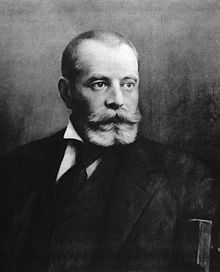A Brief History
On January 25, 1915, telephone inventor Alexander Graham Bell made the first telephone call spanning the continental United States, placing a call from New York to his assistant, Thomas Watson in San Francisco. This man was the same Thomas Watson that Bell had placed the first telephone call to back in 1876.
Digging Deeper
The famous words of the first phone call, “Watson, come here! I want to see you.” may or may not be the actual words, but they are the words History remembers. Bell was not the only person working on inventing a telephone, as many other inventors in several countries were making parallel progress, but Bell was the first to patent his device in 1876, giving him the fame attendant with the invention.
What you might not know about the invention of the telephone, is that Bell himself wanted the normal greeting when answering the phone to be, “Ahoy, hoy!” and not the familiar “Hello.” In fact, the word “hello” was not even a common greeting at that time, but an expression of discovery or being startled. (If you watch Jeopardy on television, you will note Alex Trebek often using the word “hello” in this fashion.)
It was Thomas Edison, who was backing the efforts of Bell to create a telephone network that came up with “hello” as the standard way to answer the phone, one more thing we can thank Edison for!

Those first laboratory phone calls were only a few dozen feet apart, and the first “long distance” call was made on August 10, 1876 by Bell from Brantford, Ontario to Paris. Oh, that was Paris, Ontario, only 10 miles away. The early phones transmitted a weak, very quiet audio, and inventors were frantically finding ways to boost the signal so as to make acceptable communications over long distances. Some early demonstrations of the telephone included the reciting of lines from Shakespeare.
Born in Edinburgh, Scotland, in 1847, Bell became a US citizen in 1882 and remained so the rest of his life, although he died in Nova Scotia, Canada in 1922 (of complications from diabetes). Bell was a college professor at Boston University and researcher into helping the deaf learn to communicate, and his scientific inquiries into electrically amplified sound was partly in response to the effort to help hearing impaired people hear better.

One of the claimants to the invention of the telephone, Elisha Gray of Barnesville, Ohio, lost his law suit over the telephone patent, but still became an inventor of note, being credited with the invention of the music synthesizer, and was granted 70 patents. One of those patents was for a machine that could transmit a signature electrically! Another competing inventor, Antonio Meucci from Italy, had filed a patent “caveat” with the US Patent Office in 1871 for a sort of telephone, but without the characteristics of Bell’s device. Italy recognized Meucci as the inventor of the telephone, although there are even more people that came up with a variety of devices prior to Bell’s patent. In a rare move, the US Congress passed a resolution in 2002 saying that if Meucci had the $10 fee needed to continue his caveat in 1874, it would have stopped Bell from being granted the telephone patent. Canada countered by passing their own resolution naming Bell as the sole inventor!
So many people from so many countries contributed to the development of the telephone, it is hard to give each of them their due in a short article. One notable contributor is Hungarian born Tivadar Puskas, who was working for Thomas Edison in 1876 when he developed the telephone exchange to route phone calls.

Now that the typical home has phones located in every room, and cell phones are so prevalent that even grade school children are regularly carrying them, it is hard to imagine modern life without these handy devices. Who would have thought back in 1876 or 1915 that one day “butt dialing” would be a problem?
Or that the US Government (through the NSA) would be listening in on all those millions of calls made each day?
Question for students (and subscribers): Can you predict the next great step in the evolution of the telephone? If you have any predictions, please share them with us in the comments section below this article.
If you liked this article and would like to receive notification of new articles, please feel welcome to subscribe to History and Headlines by liking us on Facebook and becoming one of our patrons!
Your readership is much appreciated!
Historical Evidence
For more information, please see…
Schaefer, Lola. Alexander Graham Bell. Capstone Press, 2006.

